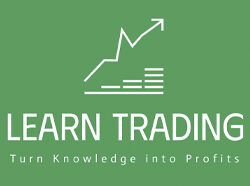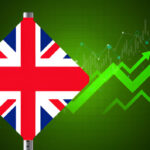What exactly is a CFD?
A CFD, or contract for difference, is a financial instrument that allows you to speculate on the price movement of an item without holding the underlying asset. CFDs can be used to trade a range of assets, including equities, indices, commodities, and currencies.
The way do CFDs work?
When you trade a CFD, you are simply entering into an agreement with your broker to swap the difference in the price of an asset between the time you open and close your trade. If the price of the asset goes up, you gain a profit. If the price of the asset goes down, you make a loss.
What are the benefits of trading CFDs?
There are a number of benefits to trading CFDs, including:
- Leverage: CFDs allow you to trade with leverage, which means you can control a larger position with a smaller amount of capital. This can magnify your profits, but it can also magnify your losses.
- Short selling: CFDs allow you to short sell assets, which means you can profit from a falling market.
- 24/7 trading: Many CFD brokers offer 24/7 trading, which means you can trade at any time of day or night.
What are the risks of trading CFDs?
CFDs are a high-risk product and can result in the loss of all your invested capital. 69% of retail investor accounts lose money when trading CFDs with this provider. You should only trade with money you can afford to lose.
Choosing the Best CFD Trading Platform in the UK
If you are considering trading CFDs in the UK, it is important to choose a reputable broker. Here are some things to look for when choosing a broker:
- Regulation: Make sure that the broker is regulated by the Financial Conduct Authority (FCA). This will help to protect you in case the broker goes bankrupt.
- Trading platform: The broker should offer a user-friendly trading platform that is easy to use and navigate.
- Spreads: The broker should offer competitive spreads, which are the difference between the bid and ask price of an asset.
- Customer service: The broker should offer excellent customer service, in case you have any questions or problems.
How to Open a CFD Account
If you want to open a CFD account, you will need to provide the broker with some personal information, such as your name, address, and date of birth. You will also need to provide proof of identity and address.
Once your account is opened, you will be able to deposit funds and start trading.
How to Trade CFDs
Once you have opened a CFD account, you can start trading CFDs. Here are the basic steps:
- Choose an asset to trade: You can choose from a variety of assets, including stocks, indices, commodities, and currencies.
- Decide whether you want to buy or sell: If you think the price of the asset will go up, you will want to buy. If you think the price of the asset will go down, you will want to sell.
- Set your stop-loss and take-profit levels: Your stop-loss level is the price at which you will automatically close your trade if the price of the asset moves against you. Your take-profit level is the price at which you will automatically close your trade if the price of the asset moves in your favor.
- Place your trade: Once you have set your stop-loss and take-profit levels, you can place your trade.
CFD Trading Strategies
There are a number of different strategies that you can use to trade CFDs. Some of the most popular strategies include:
- Day trading: Day trading involves opening and closing trades within a single day.
- Swing trading: Swing trading involves holding trades for a few days or weeks.
- Position trading: Position trading involves holding trades for a longer period of time, such as months or even years.
CFD Investing Taxes
In the UK, profits from CFD trading are subject to capital gains tax. This means that you will need to pay tax on any gains you make from trading CFDs.
Response
CFDs are a complicated financial instrument that can be dangerous. It is crucial to understand the risks associated before you start trading CFDs. You should only trade with money you can afford to lose.
If you are considering trading CFDs in the UK, it is crucial to find a reliable broker. You should also make sure that you understand the dangers involved and that you have a sound trading plan in place.



